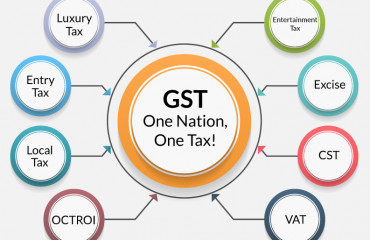
Real estate developers have topped the list of businesses facing consumer complaints for suspected goods and services tax (GST)-related profiteering, data from the Competition Commission of India (CCI) showed.
CCI decides on the merit of customer complaints based on an investigation by the Directorate General of Anti-Profiteering (DGAP), which comes under the Central Board of Indirect Taxes and Customs.
Real estate developers have topped the list of businesses facing consumer complaints for suspected goods and services tax (GST)-related profiteering, data from the Competition Commission of India (CCI) showed.
CCI decides on the merit of customer complaints based on an investigation by the Directorate General of Anti-Profiteering (DGAP), which comes under the Central Board of Indirect Taxes and Customs.
Since last May, when it regained its full quorum after a brief spell of vacant positions, CCI has issued around 44 orders on complaints of businesses allegedly pocketing the benefits of GST rate reduction or tax credits meant for consumers.
Over three-fourth of those orders deal with complaints against real estate developers, while movie halls and food outlets accounted for the rest.
While CCI ordered developers to compensate consumers in certain instances, cases were dropped in the case of several others as the profiteering charges were not proven. Typically, when profiteering is established in the case of a real estate project, a separate probe is initiated into other projects of the same builder. In some of these cases, profiteering has not been proven, but the high number of complaints keeps up consumer pressure on developers. Experts pointed out that several factors contribute to this trend.
"Buying a home involves transactions worth crores of rupees, a stark contrast to purchasing everyday items like clothing or fast-moving consumer goods, which fall into a much lower price range. This substantial financial commitment encourages buyers to exhaustively investigate every available option to ensure they fully capitalize on any tax advantages available to them," said Rajat Mohan, executive director at Moore Singhi, an accounting and advisory firm.
Moreover, the extended timelines associated with real estate projects expose a broad spectrum of developers to potential consumer grievances, said Mohan. This includes projects initiated before the implementation of GST, further complicating the landscape for consumer redressal, said Mohan.
Under the GST regime that kicked off in July 2017, builders are allowed to use the credit for taxes paid on raw materials like cement and steel for meeting their GST liability on under-construction housing projects. Property where construction is complete attract stamp duty, not GST.
From 1 April 2019, the tax rate was lowered from an effective 8% with tax credit benefit to 1% without tax credit benefit for affordable housing projects, and in other cases from an effective 12% with credit benefit to 5% without credit benefit. Older projects were given a one-time option to chose the tax regime.
CCI noted in its orders that instances of movie halls increasing the base price of a certain category of movie tickets after six months of a tax rate cut do not fall within the anti-profiteering provision. The law only mandates an immediate and commensurate reduction in price after the tax rate cut. It does not disallow subsequent price increases and there is no lock-in period for holding the reduced price after a tax rate cut announcement. The tax rate on movie tickets was reduced from 28% to 18% with effect from 1 January, 2019.
Franchisees of some of the restaurant chains faced complaints for allegedly not passing on benefits, after the tax on restaurant services was lowered from 18% with input tax credit to 5% without input tax credit from 15 November 2017.
In some cases, CCI asked the real estate company to pay interest on the profiteered amount which has been returned. Tax officials are also asked to give compliance reports in four months.
The constitutional validity of the law dealing with GST-related profiteering is now being heard in the Supreme Court after the Delhi High Court upheld it in January. The apex court has issued notices with respect to the constitutional validity of anti-profiteering provisions, said Abhishek Rastogi, founder of Rastogi Chambers, who argued on the case before the Supreme Court earlier this week.
"While the Supreme Court will hear the petitions now on the constitutional aspect, the Delhi High Court and other regulatory authorities may continue to examine the issue with respect to quantum of profiteering," added Rastogi, referring to the cases that have reached courts.
Experts said that while tax rates have stabilized in the GST regime, there are certain instances where anti-profiteering provisions will be relevant for future changes in law or tax rates. "Any GST rate reduction in future, for example, tax relief in the case of medicines during a health emergency or inclusion of crude oil, petrol, diesel, natural gas and jet fuel in GST which may unlock tax credit availability to businesses, would be instances where the anti-profiteering provision will play out in the future," explained Abhishek Jain, indirect tax head and tax partner at KPMG
